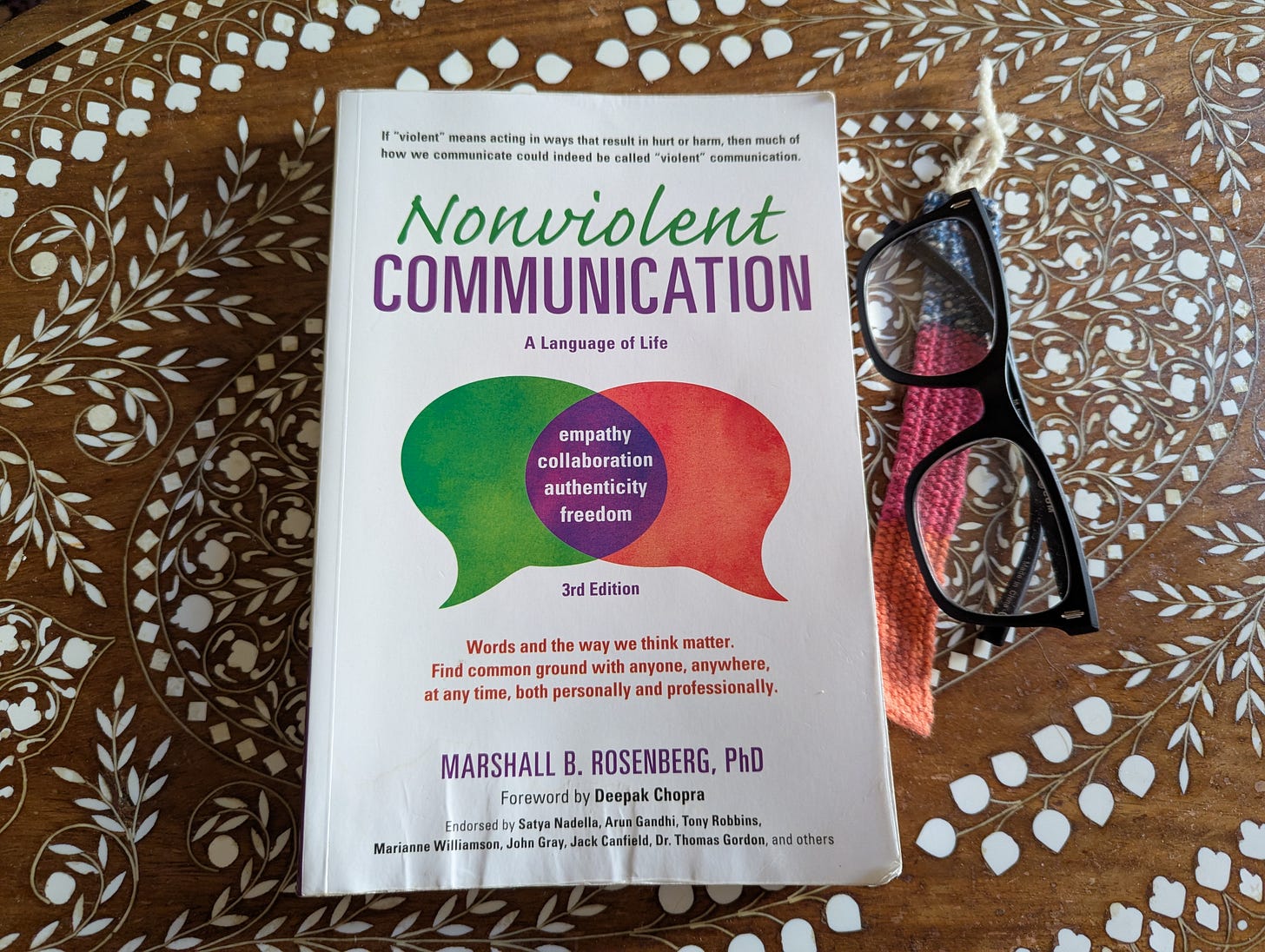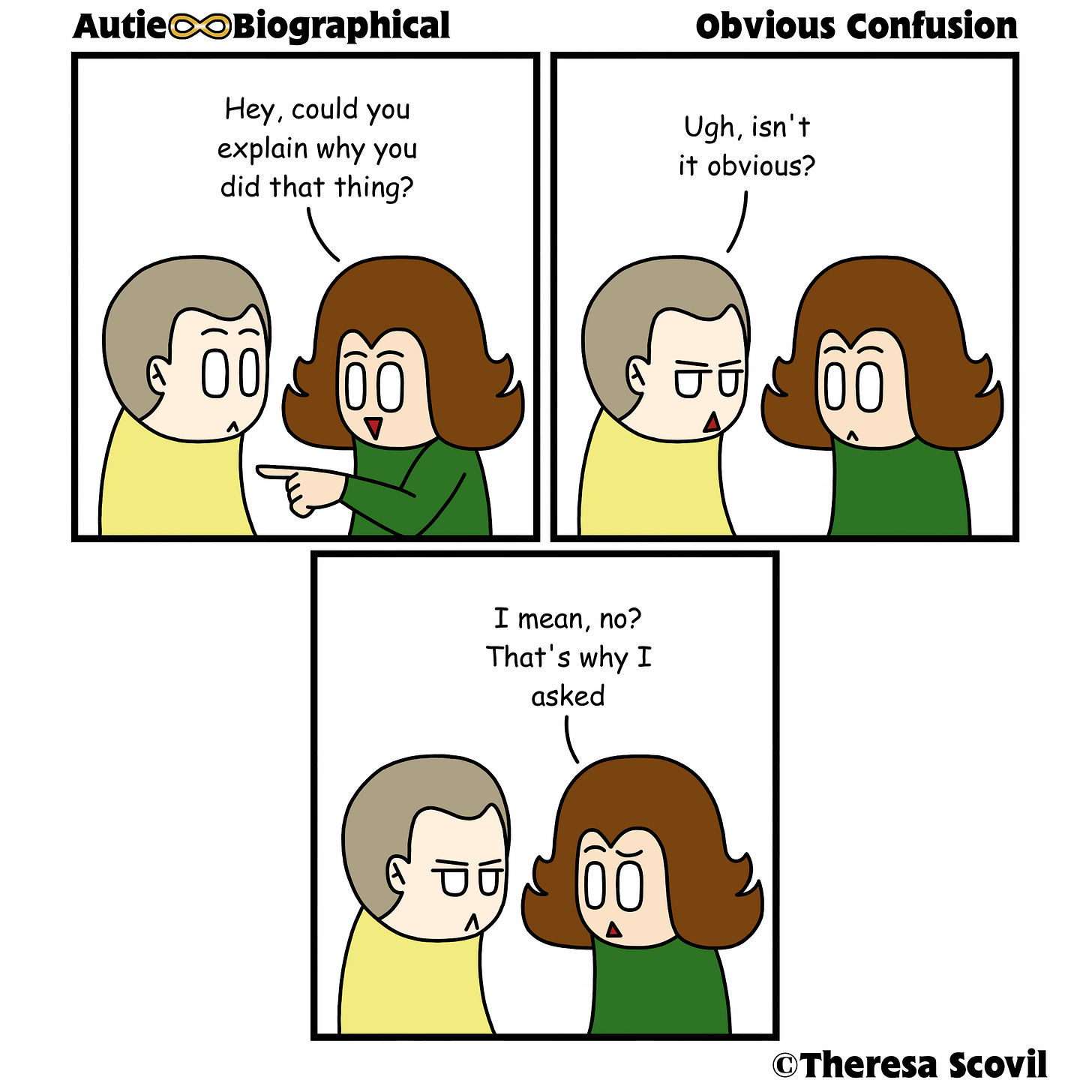Autism and nonviolent communication?
I felt like an outsider reading this book.
I am only going to offer a few thoughts on this book, as I have mixed feelings.
In general, I think the advice is sound and would help many types of relationships. However, as an Autistic individual who has had anti-racism and anti-colonialism as special interests over the past 5 years, I felt there were critical limitations.
This book was clearly written from a North American settler-colonial perspective. There were many cultural assumptions, including on global or international issues, that will feel out of place for readers from other cultures or worldviews.
It was as an Autistic person that I felt most like an outsider reading the book.
Some of the advice included not making judgements or assumptions about what the other person was expressing, and to instead ask non-judgmental clarifying questions to get at the needs of the person.
I learned as part of my earliest memories as a child that asking clarifying questions was dangerous, as judgement will always be assumed even if none were made. The very act of asking questions was taken as a judgement and a challenge (even as “debate”), and reprimands for asking clarifying questions are common.
I was indoctrinated with the notion of specific ways of thinking being “human nature”, which I only later in life learned were tied to specific cultures and/or neurotypes. I couldn't make judgements or assumptions about the other person, as it became more and more obvious to me as I learned about Autism that I had a different brain, was using a different dialect, and was effectively of a different culture (even if I didn’t have a name for it).
I can’t make accurate guesses at what an Allistic person’s emotions might be in many situations, so asking questions (and statistically likely generating anger from their neuronormative assumptions) or remaining silent (and unaware of what the other person was trying to express) have most often been my only options.
It is possible the book will be useful in having more clear conversations with other people who have read the book, where it is possible that the techniques in the book won’t generate their own misunderstandings. That is unfortunately a fairly small group of people.
I am curious if other people have read this book? I’ve read several reviews, but I haven’t really seen any from a neurodivergent perspective.





It has been my experience all my life as well that when you ask certain people questions about why they did something, they take it personally and often even consider it a "battle cry". great post